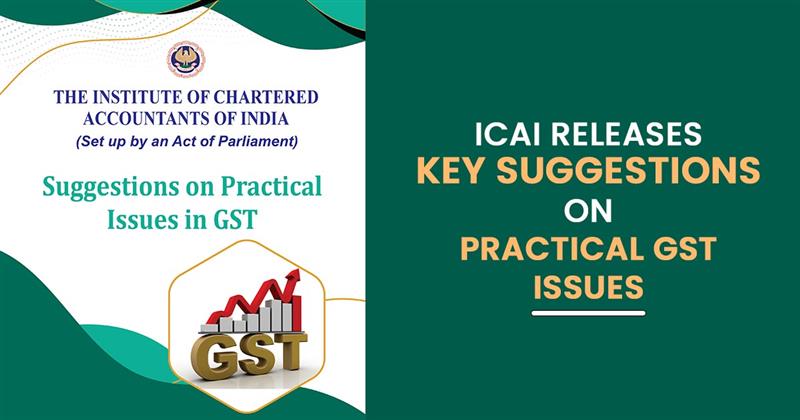
The GST and Indirect Taxes Committee from the Institute of Chartered Accountants of India (ICAI) has put together a comprehensive list of suggestions. These recommendations are being sent by the Institute of Chartered Accountants of India (ICAI), which has the motive to solve the ongoing compliance and procedural challenges under the Goods and Services Tax (GST). The GST & Indirect Taxes Committee has furnished the recommendations that comprise areas like adjudication, input tax credit (ITC), registration, refunds, returns, and e-way bills.
As 8 years have passed since the GST was implemented, taxpayers are still facing operational bottlenecks till now even after having various reforms.
Some of the suggestions are specified below-
- Defined Timelines for Notices: At least 7 working days must be provided to taxpayers to respond to Form DRC-01A intimations, ensuring fairness and adequate preparation time.
- Virtual Hearings Compliance: The norms of CBIC must be complied with by the authorities to permit the online hearings till there is a request for physical hearings.
- Dual Service of Notices: It is important to avoid ex parte orders by both electronic and physical delivery of notices, particularly for small traders and rural taxpayers.
- Streamlined Refunds: ICAI has proposed a faceless, automated, and time-bound refund mechanism that includes provisional refunds within seven days, with interest being automatically credited in case of delays.
Read Also: ICAI Releases GST Exempted Supplies Handbook in April 2025 Edition
- ITC amendments: Tax rate details in Form GSTR-2B and quarterly summaries reintroduction for seamless reconciliation were recommended. Automatic ITC restoration was suggested by ICAI, where the registration cancellation applications are withdrawn.
- Registration and Business Continuity: Proposals included preview and correction windows for applications, safeguards in cancellation orders, and procedures for transferring ongoing proceedings in mergers or demergers.
- E-Way Bill Updates: The inclusion of “Ultimate Recipient” details in Bill-to-Ship-to transactions has been urged by the committee to align system design with practical supply chain realities.
Compliance shall be improved through such amendments, and it also lessens litigation, strengthens trust in the tax system, and enhances the streamlined business operations, ICAI cited.
For additional consideration, the report has been shared with the GST Council and the Central Board of Indirect Taxes and Customs (CBIC).







